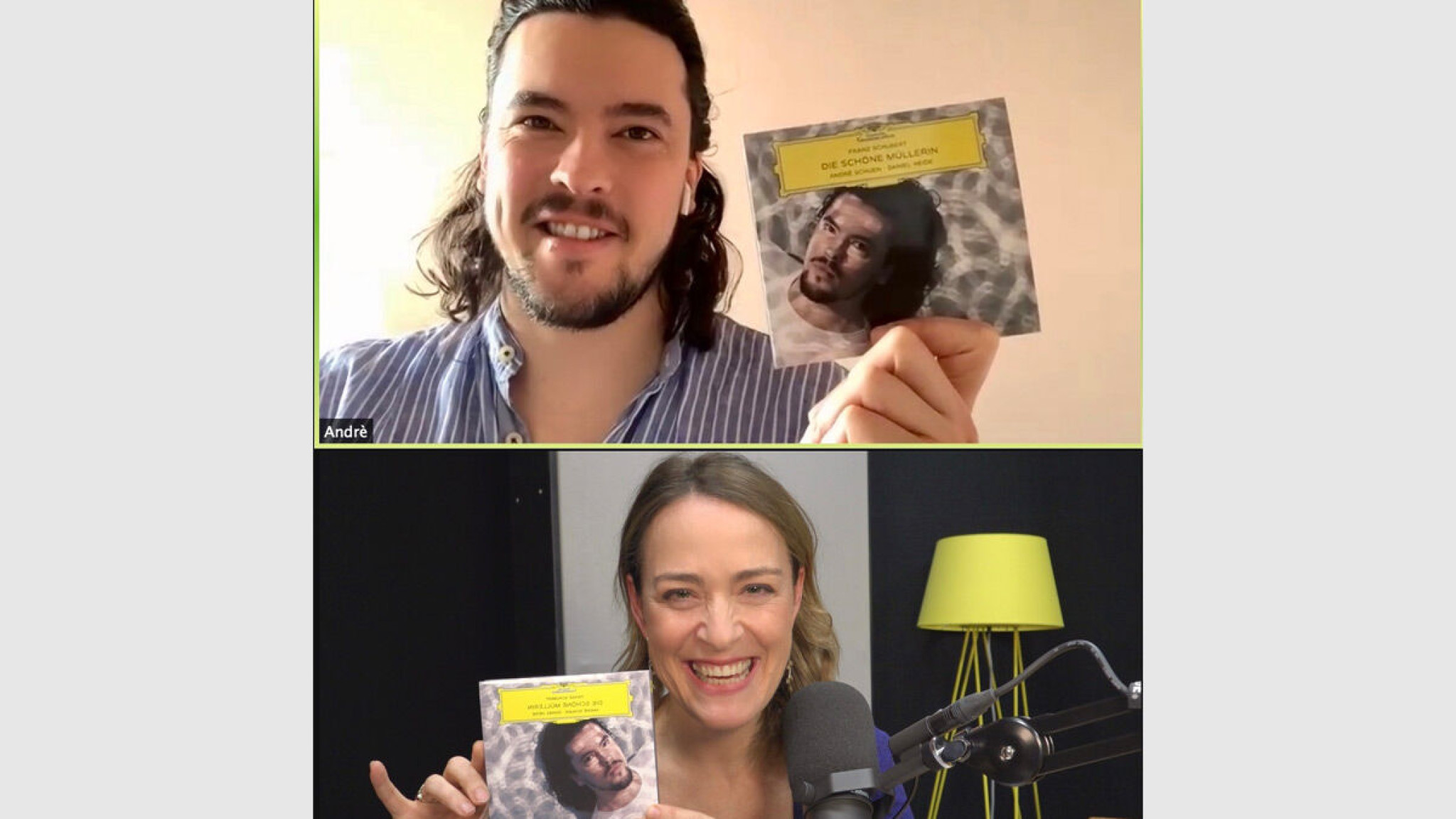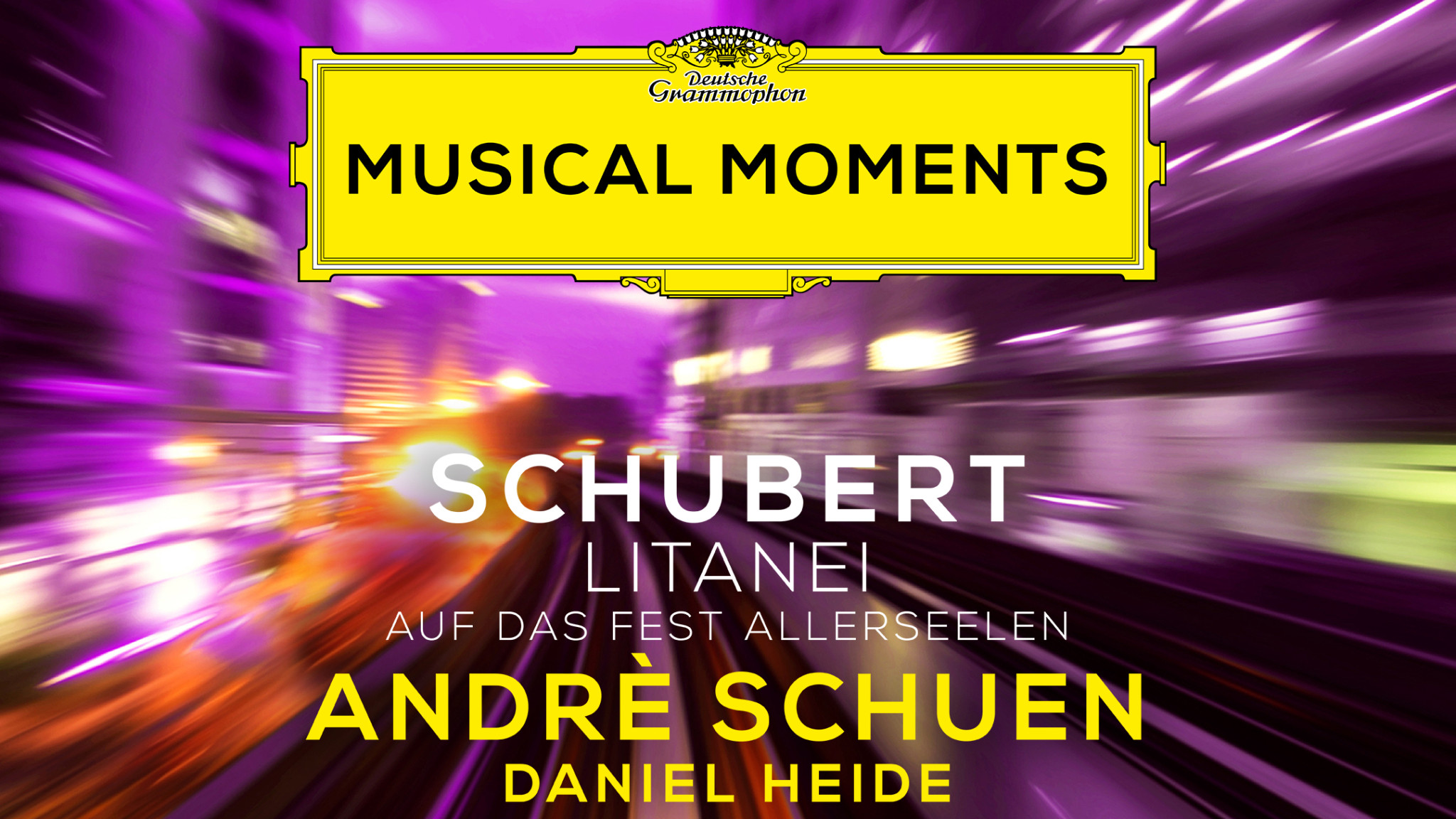Songs of Love and Loss: Andrè Schuen and Daniel Heide perform Schubert's 'Schwanengesang'

Andrè Schuen’s debut album for Deutsche Grammophon, a moving interpretation of Schubert’s Die schöne Müllerin, received widespread critical acclaim, with Gramophone praising the baritone’s “superb, free-ranging voice, used with taste and invariable sensitivity to the text”. Now Schuen continues his personal journey into the composer’s late, great song cycles with a new recording of Schwanengesang (Swan Song), on which he is joined once more by his longstanding duo partner Daniel Heide, hailed in turn by Gramophone for his “model” accompaniment and “limpid playing”. Heide’s subtle pianism again complements Schuen’s insightful interpretations as together they project the beauty and pathos, drama and despair of the fourteen Schwanengesang Lieder. The album is set for release on 18 November 2022 on CD and digitally, including an immersive Dolby Atmos version.
Schubert completed the last of what would prove to be his final songs just over a month before his death in November 1828. Seven of the poems he chose to set at this time are by Ludwig Rellstab, six by Heinrich Heine and one, (“Die Taubenpost”), by the Austrian polymath Johann Gabriel Seidl. It seems likely that he expected the Rellstab and Heine songs to be published separately; however, the Vienna-based composer and publisher, Tobias Haslinger, aware of their posthumous significance as Schubert’s last musical testament, issued them in 1829 under the title Schwanengesang.
Andrè Schuen discovered the collection long before he became a professional singer, and was swept away by its contents. “I remember a recording with Dietrich Fischer-Dieskau that I played over and over again,” he says, adding that Schwanengesang is still his “greatest love among the Schubert Lieder. Especially the Heine settings.”
This is perhaps because, although Schwanengesang is more compilation than narrative cycle, with the Rellstab songs dealing with different aspects of romantic longing and loss, the outline of a story does emerge in Schubert’s choice of Heine poems. “There are indeed parallels with Die Winterreise and Die schöne Müllerin,” notes the singer. “Here, too, we find an abandoned figure who has left home and forged his way into emotional and psychological borderlands. Sometimes, as in ‘Ihr Bild’, reality and fiction begin to blur.” The Heine songs are also notable for their economy of means, reflecting the sparse style of the poet. “There’s not one note too many!” says Schuen, who has a particular fondness for the melancholy seascape depicted in “Am Meer”. “It’s a perfect symbiosis of words and music, of Heine and Schubert,” he explains. “It’s perhaps my favourite Schubert song altogether.”
Schuen and Heide developed and refined their interpretation of Schwanengesang in acclaimed recital performances before coming to the Markus-Sittikus-Saal in Hohenems to record the work in March 2021. The baritone is unstinting in his praise for his duo partner: “Not only is he a fantastic pianist, he’s also a seasoned connoisseur of the human voice. To me this makes all the difference, his enthusiasm for colour, for the aesthetic of a voice, always in search of the magical moment and never avoiding risks.”





